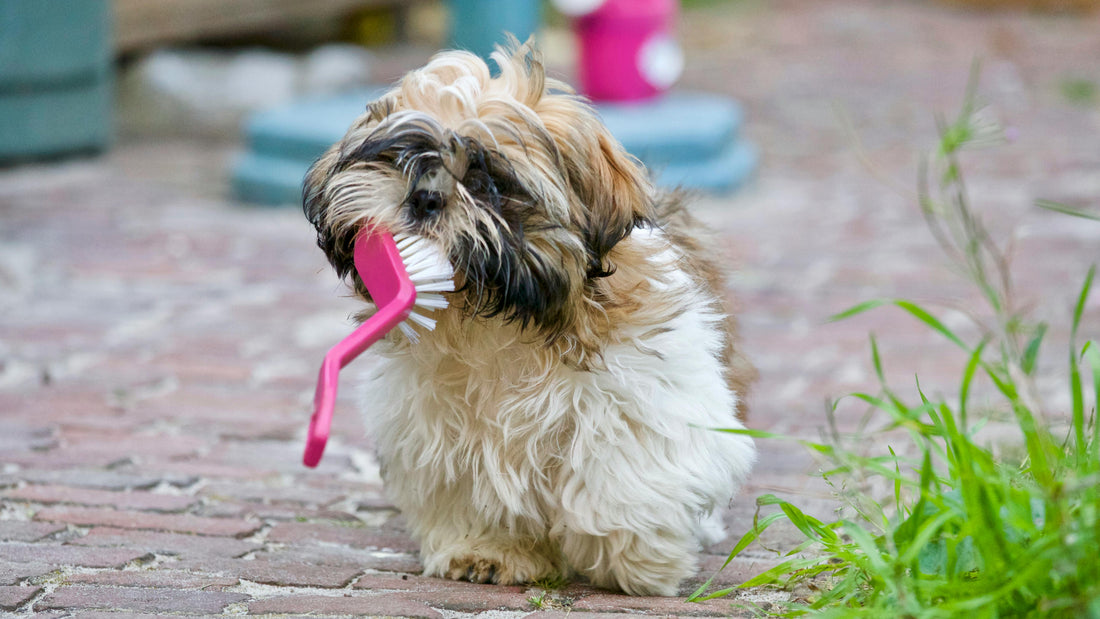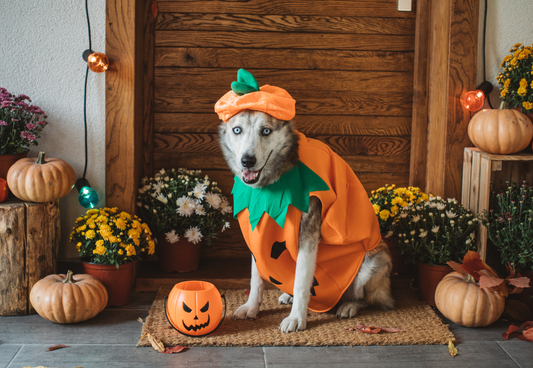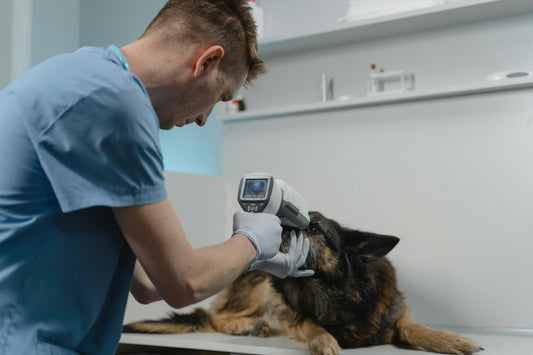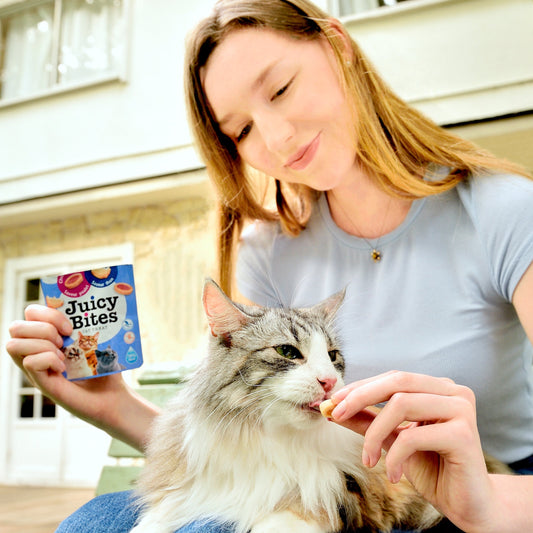No one expects their dog’s breath to smell like roses, but if it’s strong enough to make you wince, it’s time to do something about it. Bad dog breath is often a sign that something’s not right with your pup’s dental or digestive health.
If you’ve ever found yourself asking, "why does my dog have bad breath?" or "how to fix bad dog breath?", this guide is for you. Let’s look at six practical ways to improve dog breath and keep those kisses fresh.
1. Brush Their Teeth Often
Just like humans, dogs need regular tooth brushing. Bacteria and plaque build up quickly, especially if they eat soft or wet food. Most vets recommend brushing your dog’s teeth at least a few times a week, if not daily.
If you're new to it, our guide on how to brush dog teeth makes the process easier. You’ll need a dog-specific toothbrush or muslin cloth and toothpaste (never use human toothpaste).
2. Give Dental Chews and Target Bacteria at the Source
Dental chews can help reduce plaque and tartar buildup while keeping your dog entertained. They’re also great for freshening breath.
Recent research suggests that using a targeted postbiotic supplement can help reduce odour at the source. In one study, dogs given a postbiotic food topper showed a 27% reduction in volatile sulphur compounds (VSCs), the compounds responsible for bad breath. These VSCs, including hydrogen sulphide and methyl mercaptan, are produced by harmful bacteria and are also linked to gum disease.
Adding a vet-approved supplement or oral dental powder to your dog's meals may help tackle breath issues more effectively than brushing alone.
3. Try Dog Food Supplements for Oral Health
There are several dog food supplements designed to promote better oral hygiene. These may include probiotics, enzymes or natural ingredients like parsley or mint to help neutralise odour-causing bacteria.
Add them to your dog’s meals or use them as directed. They can be especially helpful if brushing isn’t possible every day.
4. Book Regular Dental Check-Ups
Routine dental exams are essential. During these visits, your vet may recommend professional cleaning under anaesthetic to remove plaque and tartar you can’t reach at home.
If you’re wondering how much dog dental cleaning costs, it can vary based on your location and your dog’s size and dental condition. A vet can give you a clear estimate during your visit.
5. Feed High-Quality, Nutritious Food
Sometimes, bad dog breath can be linked to poor digestion or low-quality food. Switching to an Australian healthy dog food brand made with real, digestible ingredients can make a noticeable difference.
Look for options that support dental health or include ingredients known to aid digestion. A balanced diet helps reduce the bacteria that contribute to bad breath.
6. Rule Out Underlying Issues
If nothing seems to help, it could be a sign of something more serious. Conditions like gum disease, kidney problems or diabetes can all cause persistent bad breath.
Your vet may recommend blood tests, dental X-rays or further investigation. You can also learn about dog gum disease treatment or learn more about gingivitis in dogs to understand what to watch for.
Don’t Ignore the Gums
While most people focus on the smell, your dog’s gums can offer early clues about their oral health. Bleeding, redness or swelling around the gumline might point to inflammation or the beginnings of gum disease. These symptoms are often painless at first, but can progress quickly. Keeping an eye on your dog’s gums during regular brushing or mealtimes can help catch problems early before they become painful or expensive to treat. If your pup’s breath has been off lately, try these tips and see how quickly things improve.
Freshen Up Your Pup’s Breath
So, why does my dog have bad breath? It could be due to plaque, poor diet or underlying health issues. The good news is that there’s plenty you can do.
Bacteria like Porphyromonas gulae are known to produce high levels of VSCs. These not only cause strong odours but also damage gum tissue. Tackling these bacteria through food, supplements and vet care is one of the best ways to improve your dog’s breath long-term.
A combination of regular cleaning, the right food and professional support makes all the difference. If your pup’s breath has been off lately, try these tips and see how quickly things improve.




